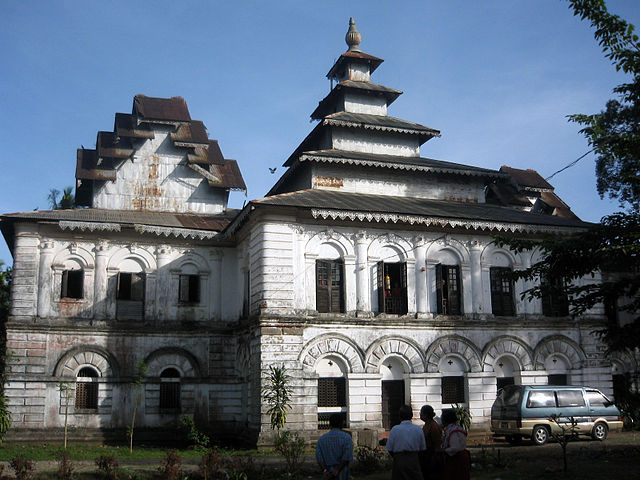Shwe Zedi Kyaung, U Ottama’s monastery in the city of Sittwe, Rakhine State, in Burma/Myanmar. Image Credit: Wikimedia Commons Almost a decade before Mohandas Gandhi would become world-recognized as the face of a reformer hoping to bring about change through nonviolent means, a Buddhist monk unhappy with British rule died in prison on September 9, 1939 — and inadvertently became the first martyr in the movement for an independent Burma. When the nation threw off the yoke of colonial government in January 1948, U Ottama was elevated to the status of national hero. Born in western Burma late in 1879 as Paw Tun Aung, the young man moved to Calcutta to become well-versed in the ways of Theravada Buddhism and took on the name Ottama. After three years and achieving entrance into the brotherhood, he traveled around India before making his way to Europe and the Middle East. In early 1907, he moved to Japan and worked a Pali and Sanskrit instructor at the Academy of Buddhist Science in Tokyo, working with other monks to help novices elevate their understanding of Buddhist tradition — but only for so long. Within a few years, Ottama found himself on the road again, visiting much of southeast Asia and eventually crossing paths with the deposed Burmese prince Myin Kun. Though the exiled leader had taken control by killing the heir to the throne, Ottama gained a new perspective on the negative effects of British governors having control over Burma. When he returned to his homeland, he focused his energies on voicing opposition to colonization. Beginning in 1921, his voice began getting heard in the political arena. Shortly after a speech against the then-Governor, Sir Reginald Craddock, Ottama was imprisoned for inciting a crowd against the government. This began a six-year odyssey in which he would be released from jail and then be brought back in within days after delivering another long rant against the tyranny of British colonialism — experts believe that, between his first arrest and the end of 1927, Ottama spent more time behind bars than walking the streets. Having learned of Ghandi on his travels, Ottama engaged only in non-violent protests. Though not affiliated with any political party and only loosely connected with a number of anti-colonial organizations, he managed to become nearly as effective as most any of the officers of his day in those groups. British administrators, wary of unrest building each time Ottama had an audience, arrested him once again for pushing for nationalization late in the 1930s. This would be the last time Ottama found himself sleeping in a jail cell. Getting reports of events going on outside the prison walls, he decided to undertake a hunger strike as a way to demonstrate solidarity with his fellow nationalists and protest the unfair treatment of the Burmese revolutionaries by British officials. On September 9, 1939, Ottama died and gave the movement its first martyr while becoming the first in a long line of Buddhist monks who defended the rights of a free Burma.
September 9, 1939 CE – U Ottama Dies in Burma Protesting British Colonization
Shwe Zedi Kyaung, U Ottama’s monastery in the city of Sittwe, Rakhine State, in Burma/Myanmar. Image Credit: Wikimedia Commons Almost a decade before Mohandas Gandhi would become world-recognized as the…
426
